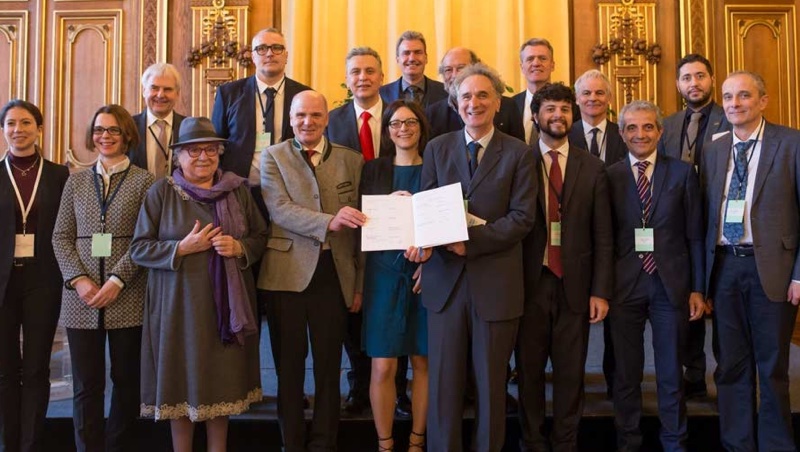NUREMBERG, 15 FEBRUARY 2018 – As of today, Europe is one step closer to transforming food and farming. The ‘Organic City Network Europe’ and IFOAM EU signed a Memorandum of Understanding at Biofach to give a strong foundation to their collaboration to work together towards a fair, environmentally conscious, healthy and caring food and farming system. The ‘Organic City Network Europe’ and IFOAM EU will cooperate on the future of the Common Agriculture Policy (CAP), regional and local food supply chains, Green Public Procurement (GPP) policies, research and innovation, the true cost of food, increasing the transparency of supply chains, and access to land for new organic farmers.
Claudio Serafini, Director of the ‘Organic Cities Network Europe’, is enthusiastic that cities are increasingly recognised as important players in contributing to transforming the European agricultural policy: “Since the turn of the century, European cities, towns and regions have played an increasingly important role in promoting organic agriculture, the organic industry and organic food. Cities hold a wealth of expertise and experience on how to contribute to a European agricultural policy that pursues food security and sustainable development, improves the quality of life of local and regional residents, and contributes to achieving the objectives and targets set out in the Paris Agreement on Climate Change, in the Sustainable Development Goals (SDGs) and in the Milan Urban Food Urban Food Policy Pact.”
“The European organic movement wants to take the lead in transforming the food system to a sustainable system – both in Europe and globally;” says Eduardo Cuoco, Director of IFOAM EU “Such a transformation must be a joint effort by the entire food sector and the policy-makers. Local authorities will play an important role in guaranteeing to that European citizens have access to organic food. Policies such as green procurement in public canteens will stimulates sustainable diets, the development of local and regional organic supply chains and increasing public awareness of organic food products. We are sure that this collaboration will help make our shared ‘Organic Vision for Europe to 2030’ a reality.”

